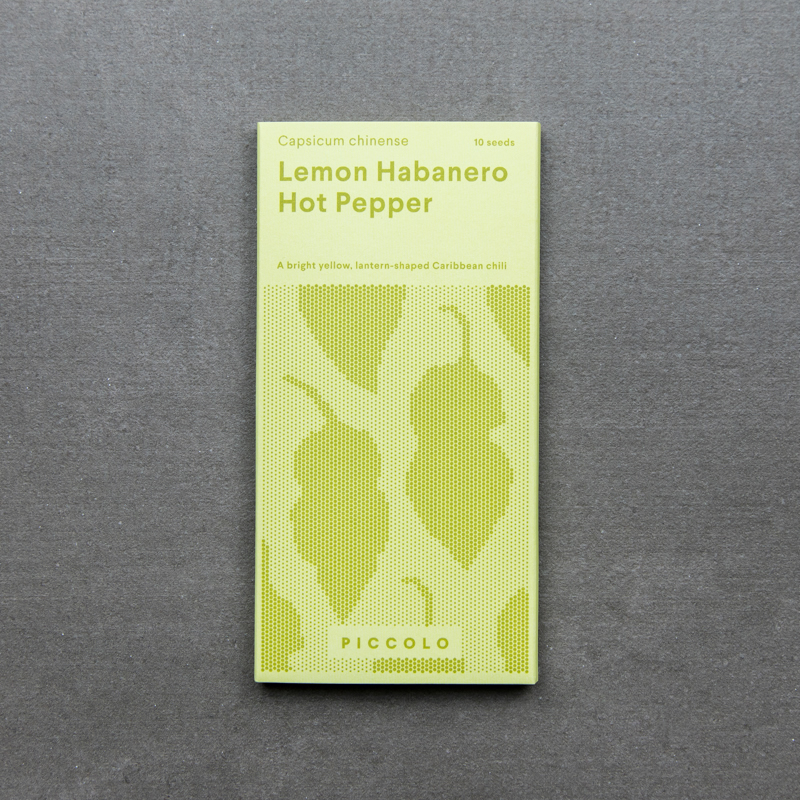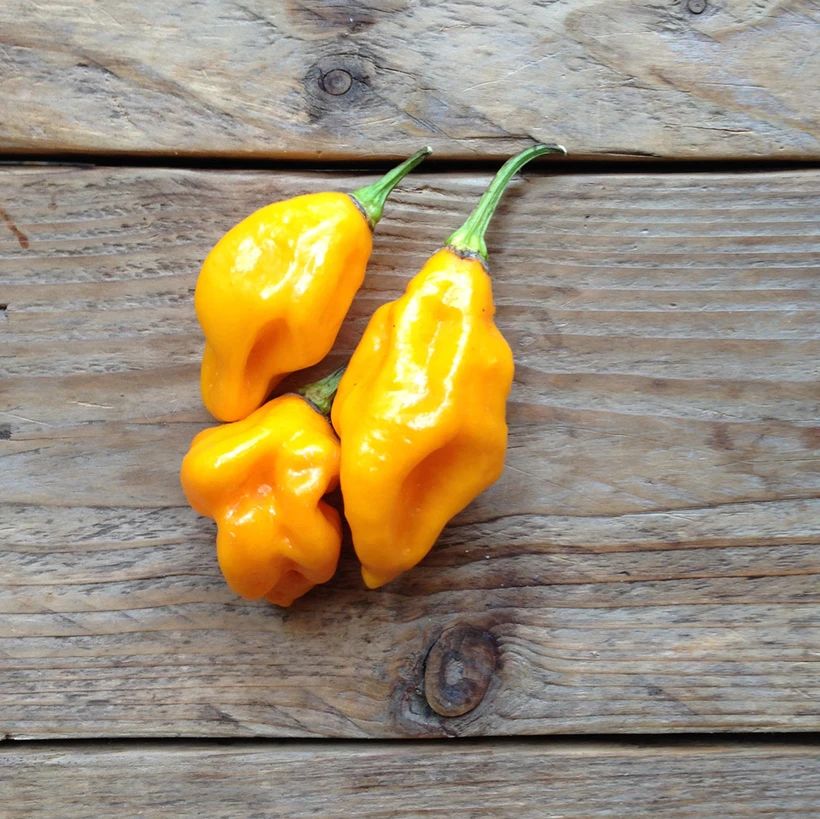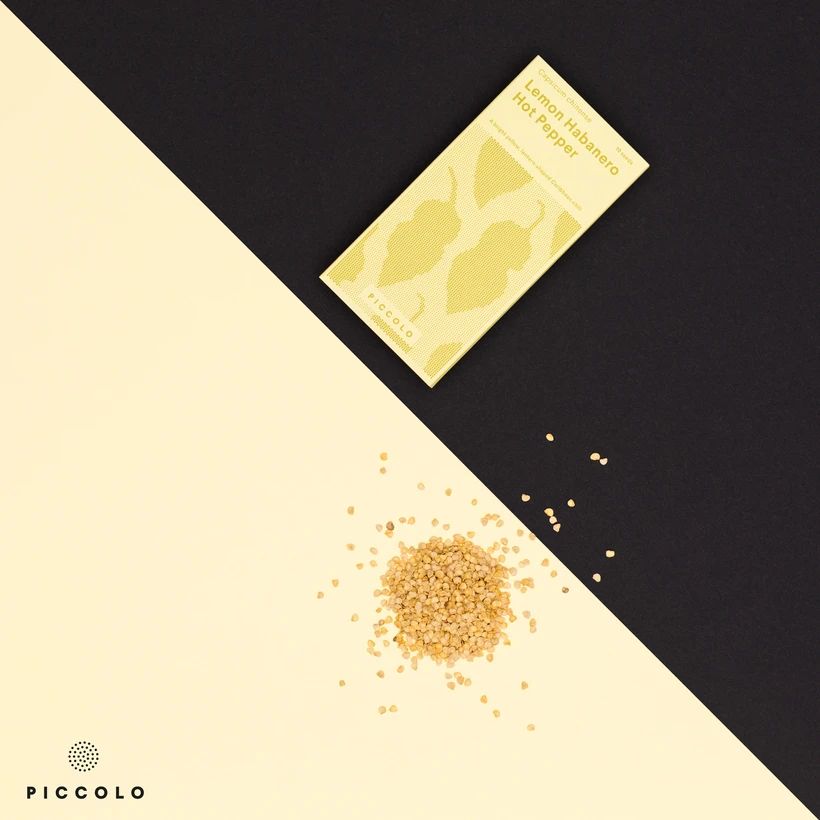Hot Pepper ‘Lemon Habanero’
£4.00
Habanero Lemon, also known as Yellow Habanero, is a lantern-shaped chili that matures from green to lemon yellow. The pods grow to about 5 cm long and 2.5 cm wide, and have a distinctive fruity and citrusy taste (and, according to some, even an apricot-like aroma). Let’s talk about spiciness: our yellow friend doesn’t exceed the capsaicin level of the average habanero, registering at about 100,000–300,000 on the Scoville scale. But that’s a lot! Named after the city of La Havana in Cuba, these peppers are most likely to have originated in the Amazon region, although they are very popular in the Caribbean.
| Common name | Hot Pepper |
|---|---|
| Latin name | Capsicum annuum |
| Variety | Lemon Habanero |
| Quantity | 10 seeds |
| Plant size | Height: 70 cm Width: 45 cm |
| Container size | Height: 30 cm Width: 30 cm |
| Companion plant(s) | Basil, okra, onions, radishes, calendula, mint |
| Planting indoors | Feb to Mar |
|---|---|
| Planting outdoors | May to Jun |
| Germination | 15 to 30 days |
| Harvesting | 90 to 120 days |
| Planting | 5 cm apart at 0.5 cm depth |
| Thinning | 30 cm |
| Light | Full sun |
| Soil | Well-drained, light and moist soil |
| Watering | Regular watering, allow to dry out |
| Feeding | Heavy feeding |
| Caring | Habaneros like it hot: the soil temperature should be kept higher than 18°C to ensure good germination. |
| Beneficial wildlife | Although peppers are self-pollinating plants, pollinators will increase fruit set. |
| Pests | Grow companion plants that attract ladybirds to prevent aphid attacks. |
| Harvesting | The more habanero peppers you pick, the more you will harvest! Pick the peppers often – as soon as they are ripe – to ensure a continued harvest. |
|---|---|
| Eating | Medicinal properties: Contain a high concentration of vitamins and minerals. Can help relieve pain. How to eat: Try them fresh from the plant, chopped and added to salads. Use them as a garnish for Caribbean recipes or add them to salsas, marinades and bottled condiments. |
Out of stock





